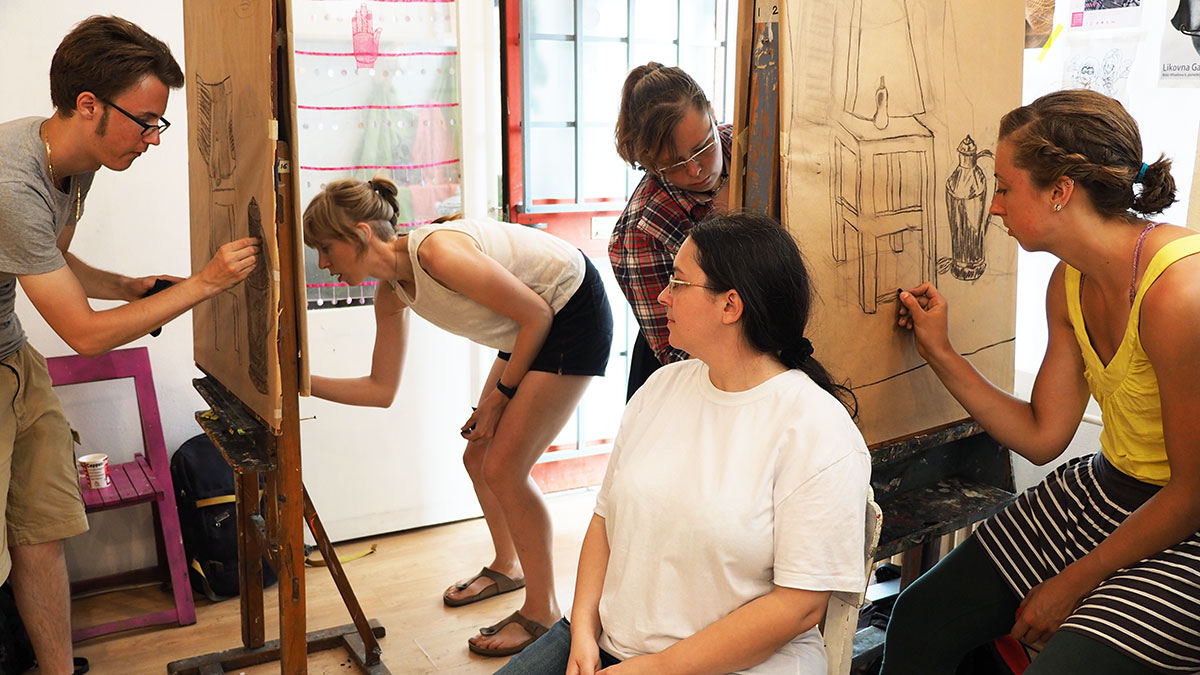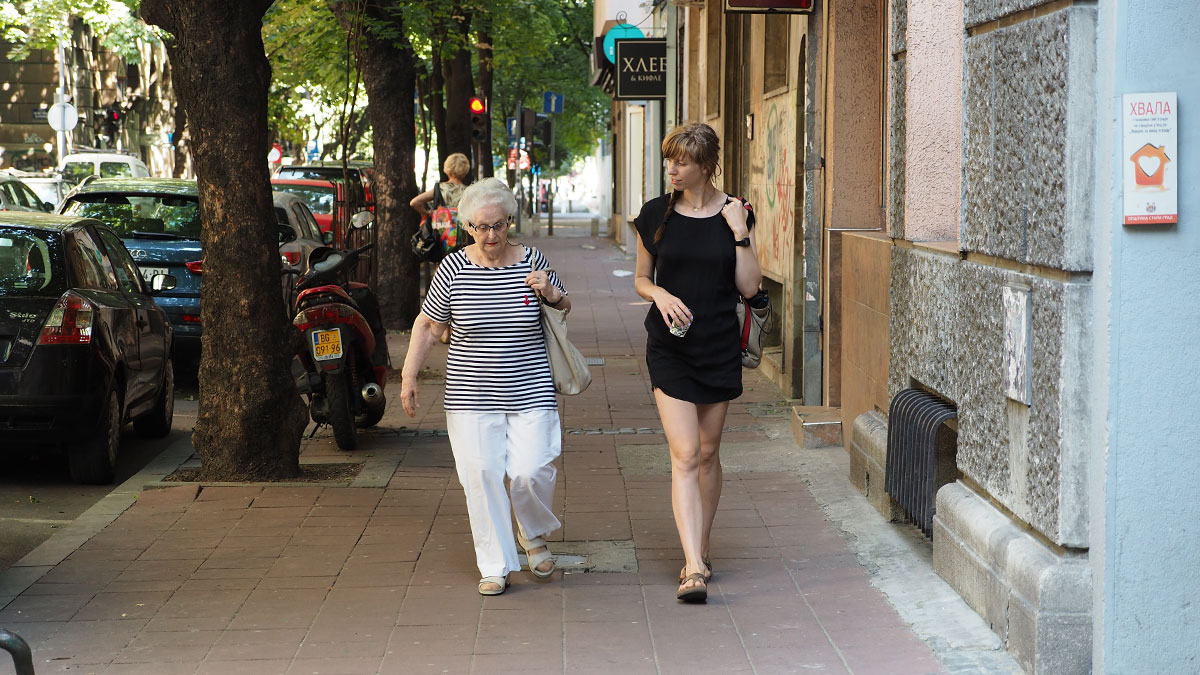Serbian field school prepares for second excursion
 Supplied — Marko Zivkovic
Supplied — Marko ZivkovicField school was full of freedom, which led student Craig Farkash to find Belgrade’s elusive underground music scene. His favourite discovery was the tiny venue called Fox.
“It was this small, cabin-sized building. It’s got that old-school bluesey delta feeling. There’s smokey air and people are drinking beer and there’s dancing,” he said. “What would be the living room is where the stage was … there was a cutout in the wall and where you think a kitchen would be was another seating area. It was a really tight, intimate setting that was so amazing.”
Finding music and soundscapes wasn’t just for fun — it was for Farkash’s project in the U of A’s new Fieldschool for Ethnographic Sensibility. The school for anthropological fieldwork trains students to explore Serbia at the sensory level. The school offers an alternative method to ethnography by training students to focus on the five senses instead of only relying on interviews to gather data. This means observing how people line up for coffee, whether they take their shoes off indoors and how people act on busses.
Students live together in a hostel for the first week of the fieldschool. In the second week, they travel to Sirogojno Old Village Open Air Museum, a traditional 19th century village and “ethno-museum.” In the last four weeks, students live in homes of their host families.
The Fieldschool introduces students to ethnography as an art. Students start out with exercises in observation and move on to their own projects, where they learn, through experience, about the spontaneous and anxiety-provoking nature of fieldwork. There was total freedom in picking research topics — one student studied anger, another masculinity. Farkash studied music. At the end of the school, students presented their projects in an art show, he said.
“It’s really tough, because you eventually kind of fall in love with (Belgrade), and you want to show the city you experience,” he said.

Students had to pay attention to what rubbed them the wrong or the right way about the culture. Small differences became noticeable to students after a couple weeks. The idea was for students to read Canadian-ness and Serbian culture by using their bodies as instruments.
The idea for the Fieldschool for Ethnographic Sensibility came to associate professor of Anthropology Marko Živkovi from years of watching his late wife teach art at the university. Art students each had their own styles, but they were still taught an artistic method. Similar training could be applied to ethnography, as there are general skills that are learned. But ethnographic fieldwork is rarely taught. Normally students learn through their own trial and error, Živkovi said.
“(Anthropology students) will go to the field with a 40-page document that describes in detail what they’re going to do,” Živkovi said. “And yet … there’s something suspicious if they completely stick to it.”
The Fieldschool gives six credits for six weeks of work between May 30 and July 9. Students pay for flights to Belgrade, regular tuition for a six-credit U of A course and a $2400 fee for services and host families. The program has also won the Education Abroad Group / CAGFIL Awards for 2016, which cover $1250 for students meeting outlined criteria. Teaching staff will include instructors and three preceptors, or student mentors, who went on the 2015 trip.
There are about six places left for the 2016 Fieldschool for Ethnographic Sensibility. Farkash will be returning as a preceptor.
“It just really helps you tune in. You’re forced to tune in to the social cues, the smells and sights.” Farkash said. “As you’re studying the city, it also allows you to reflect on yourself.”





(is it necessary to include late?)
Jesus. Are you a newspaper or a blog? Give me $5 or a beer and I’ll teach you how to use comments on microsoft word instead of typing things in like this so when you copy/paste text you don’t make embarrassing mistakes.